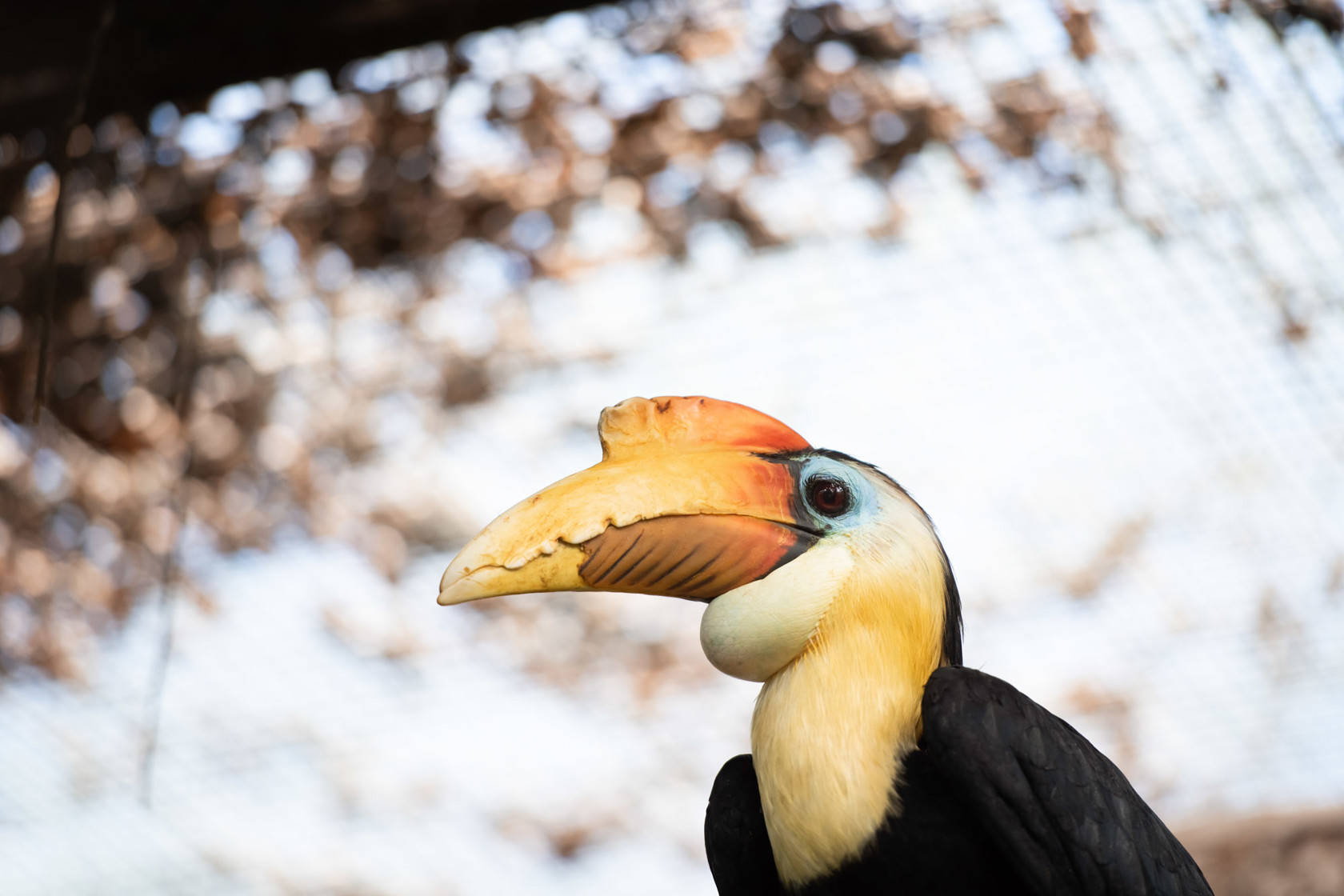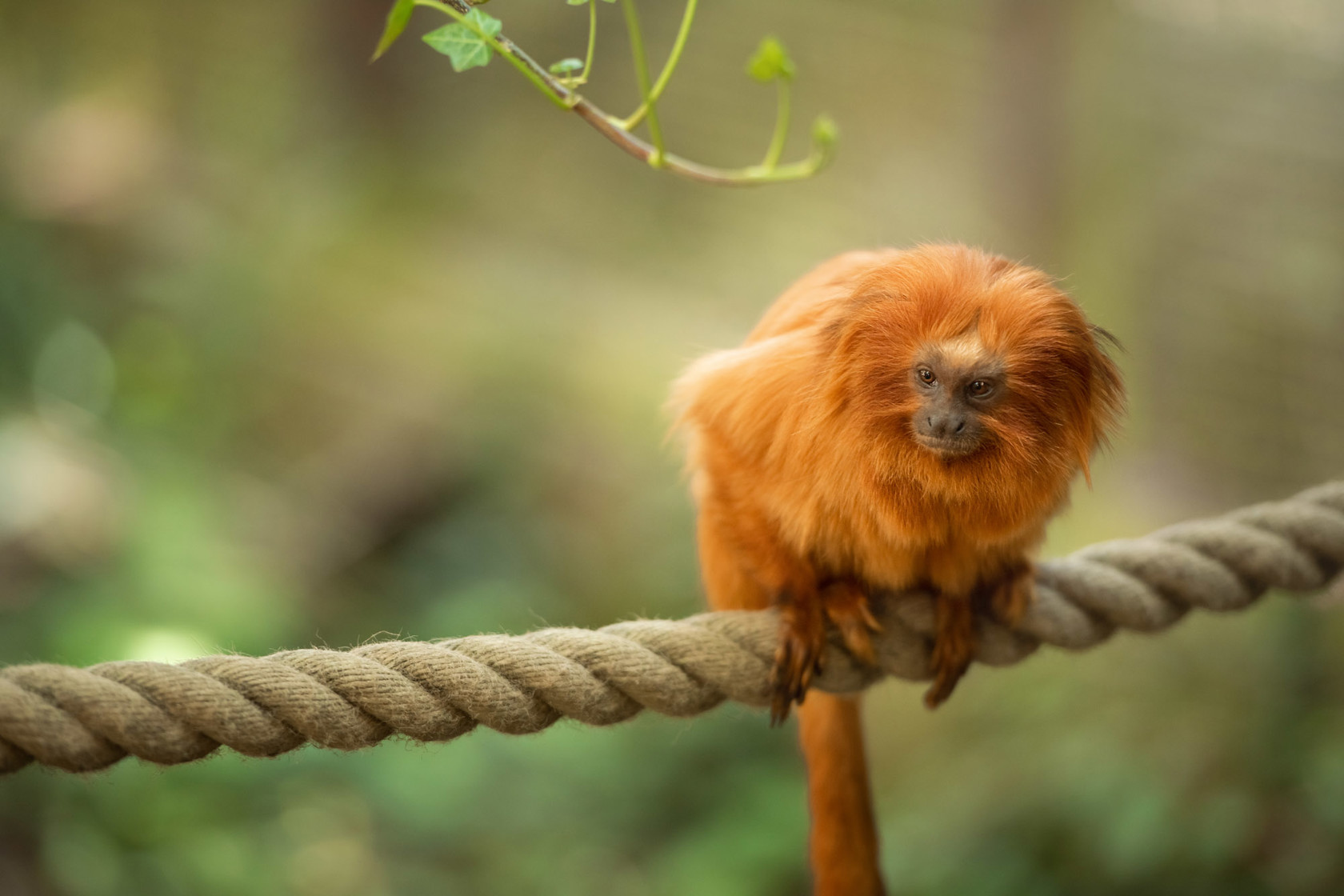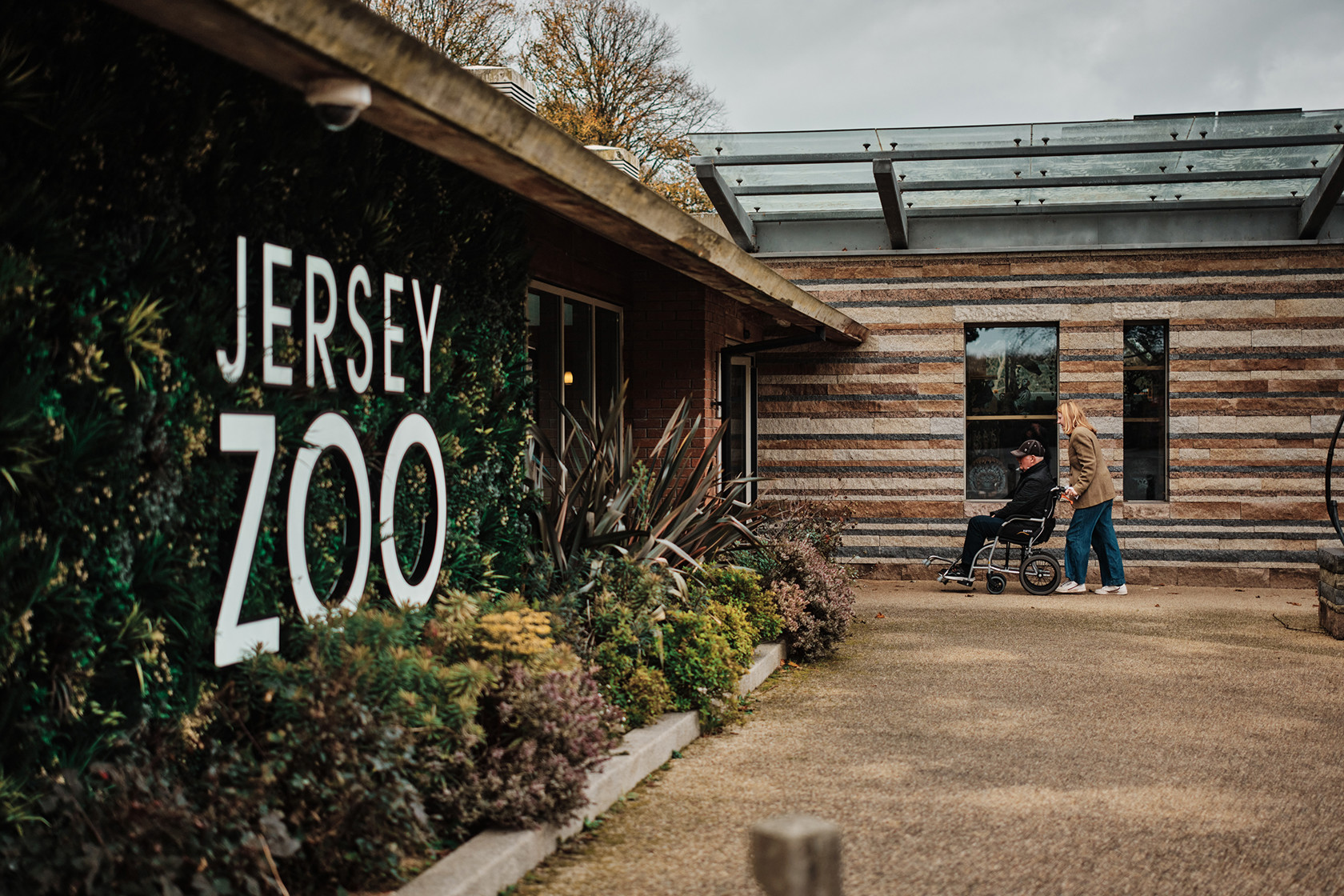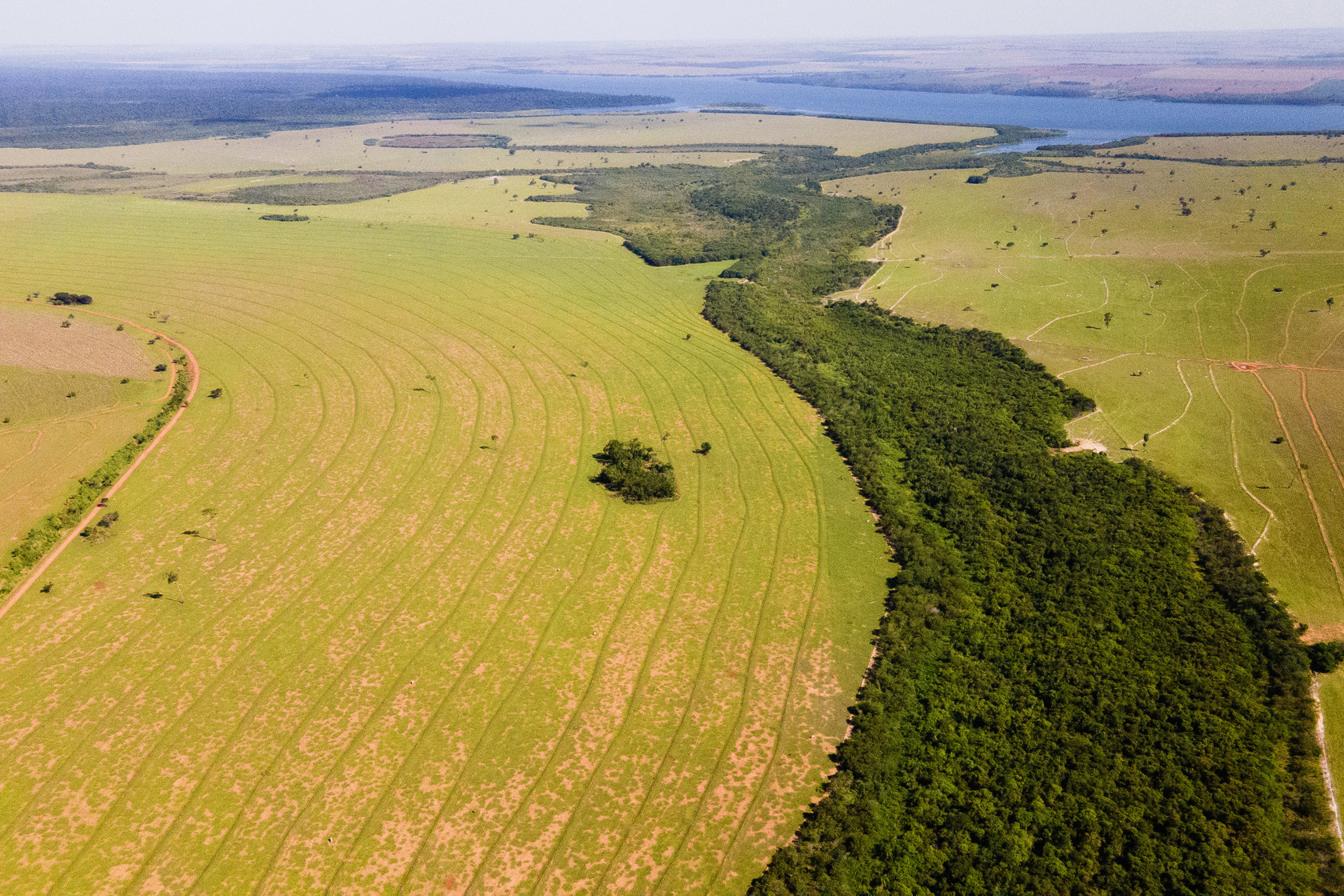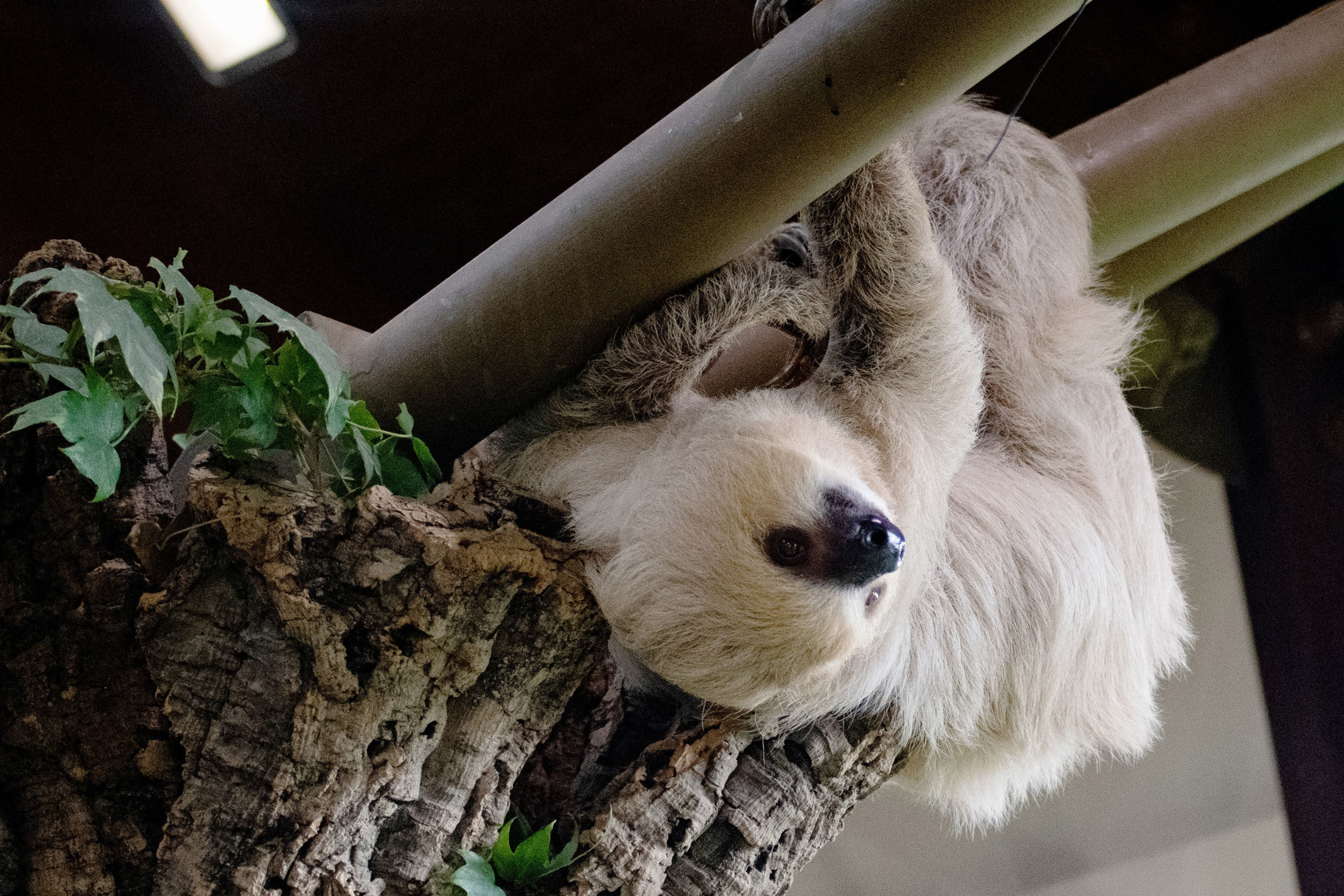Sussex White Stork nest camera goes LIVE!
For the first time in the UK a live stream camera has been fitted onto a wild white stork nest at the Knepp Estate in West Sussex, giving viewers an intimate view into the lives of these charismatic birds.
In 2020, two pairs of white storks built large nests in oak trees in the rewilding project at Knepp Estate. They successfully fledged four chicks between them – the first white storks to breed in the wild in the UK for over 600 years. This was a landmark moment for the White Stork Project – a collaboration between the Knepp Estate, two other private landowners, Cotswold Wildlife Park, Roy Dennis Wildlife Foundation and Durrell Wildlife Conservation Trust - which aims to re-establish white storks as a breeding species in the UK.
Now, thanks to the new live stream camera members of the public will be able to get a stork’s eye view of the exciting process of nesting, egg-laying and fledging, all from a nest built by the storks last year on a chimney on top of Knepp Castle.
The live streaming camera, which has been installed by the White Stork Project and Wildlife Windows thanks to generous support from The John Swire 1989 Charitable Trust, will also enable staff and volunteers to get a good look at activity in the nest. Until now, monitoring of nests has been undertaken from the ground by project staff and a team of dedicated volunteers who watch the birds’ behaviours through binoculars and scopes to determine when eggs and chicks are present in the nest. Then, with some help from drone monitoring, the project team can estimate the age of those chicks to enable them to be ringed and sexed at the right time. This new camera will give the project a greater insight into the behaviour of these birds, along with opportunities for citizen science and engagement.
In 2021 a pair of storks chose Knepp Castle’s chimney for their nest site, further away from the other nests built in oak trees in the southern part of the Estate. The pair successfully raised a single chick to fledging in August. White storks are very faithful to their nesting sites and individuals have already been seen back visiting the castle and surrounding areas after overwintering in Sussex. It is hoped the same pair will return to the nest in the coming weeks and begin their preparations to raise another brood of white stork chicks.
Isabella Tree, joint owner of the Knepp Estate, says, “It’s beyond exciting to have storks nesting on our roof! The sound of bill-clattering as the storks celebrate each step of the nesting process with each other, twig by twig, is one of the most joyful sounds one can ever hope to hear. Our ancestors would have been familiar with this sound. No wonder storks are associated with good fortune and rebirth. On a cold day in February/March, this is the sound of hope and rejuvenation. I can’t wait for them to return!”.
The project team are asking members of the public to submit data and sightings from the live camera via a form on their website and to share their stork camera experience on social media using #ISpyStorks
Sightings of white storks can also be submitted through the project’s website. Over 2,000 sightings of UK storks have been recorded from across the UK, France, Germany, the Netherlands, and Spain since releases began in 2019. This information is invaluable for learning about the movement and behaviours of these birds.
Durrell Wildlife Conservation Trust provides post-release monitoring expertise as well as work with local communities around the release sites. Lucy Groves, White Stork Project Officer for Durrell, commented: “This camera is a fantastic opportunity to get a good look at what goes on in a stork nest, and we’re hoping that people from far and wide will want to help contribute to the monitoring of this nest. We’re looking for certain signs and behaviours so we know when eggs are laid, when chicks hatch and any other interesting behaviours people might notice whilst watching. This is a great chance for people to get involved with citizen science and the White Stork Project. So far, this stunning species has really captured people’s imagination through visits to Knepp and sightings of storks around the UK. We hope viewers will really get to know this pair and enjoy watching the storks as much as we do”.
For more information about the project and to view the live stream camera visit www.whitestorkproject.org/live or follow us on Twitter and Facebook @ProjectStork or Instagram @WhiteStorkProject

